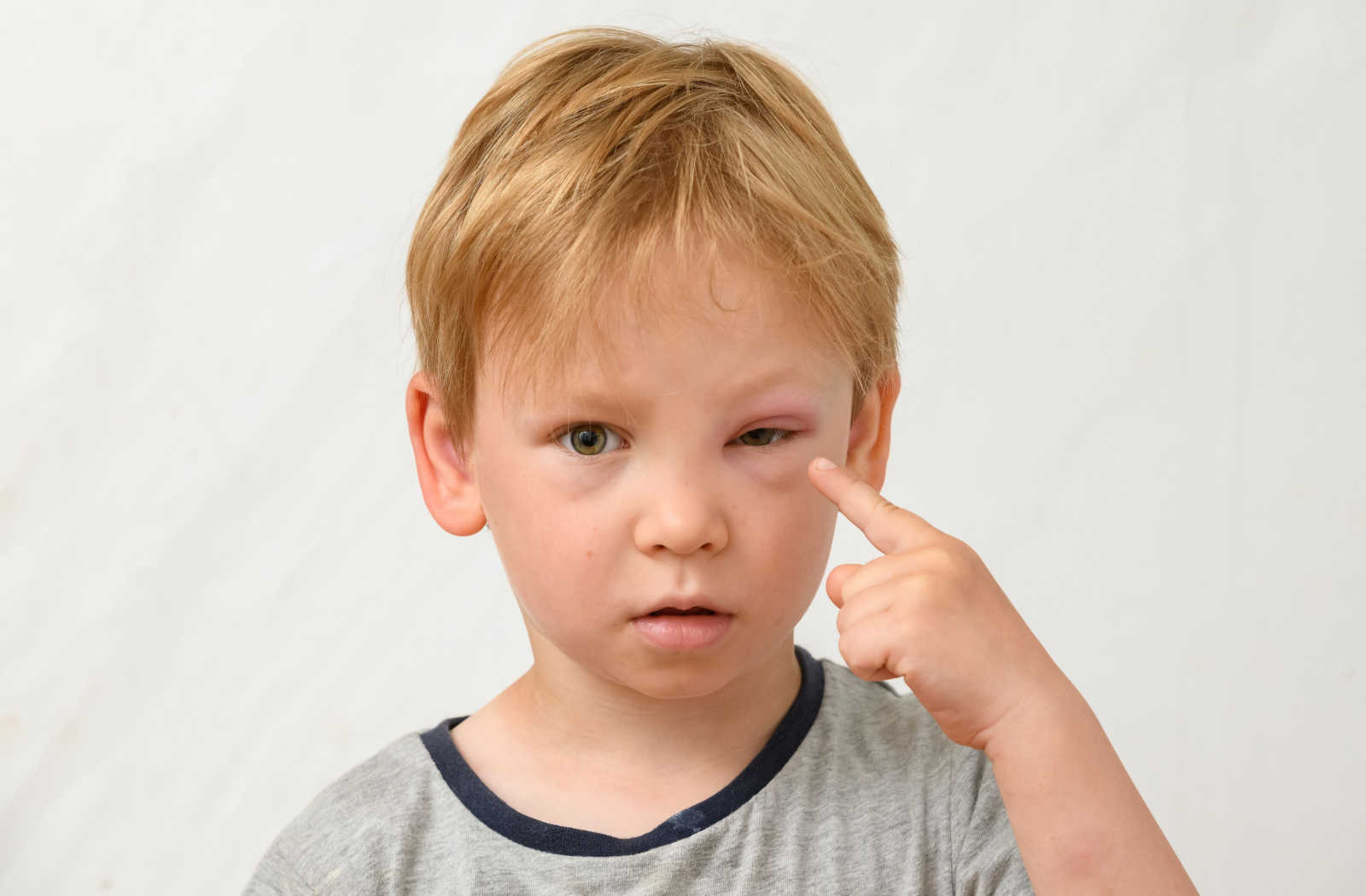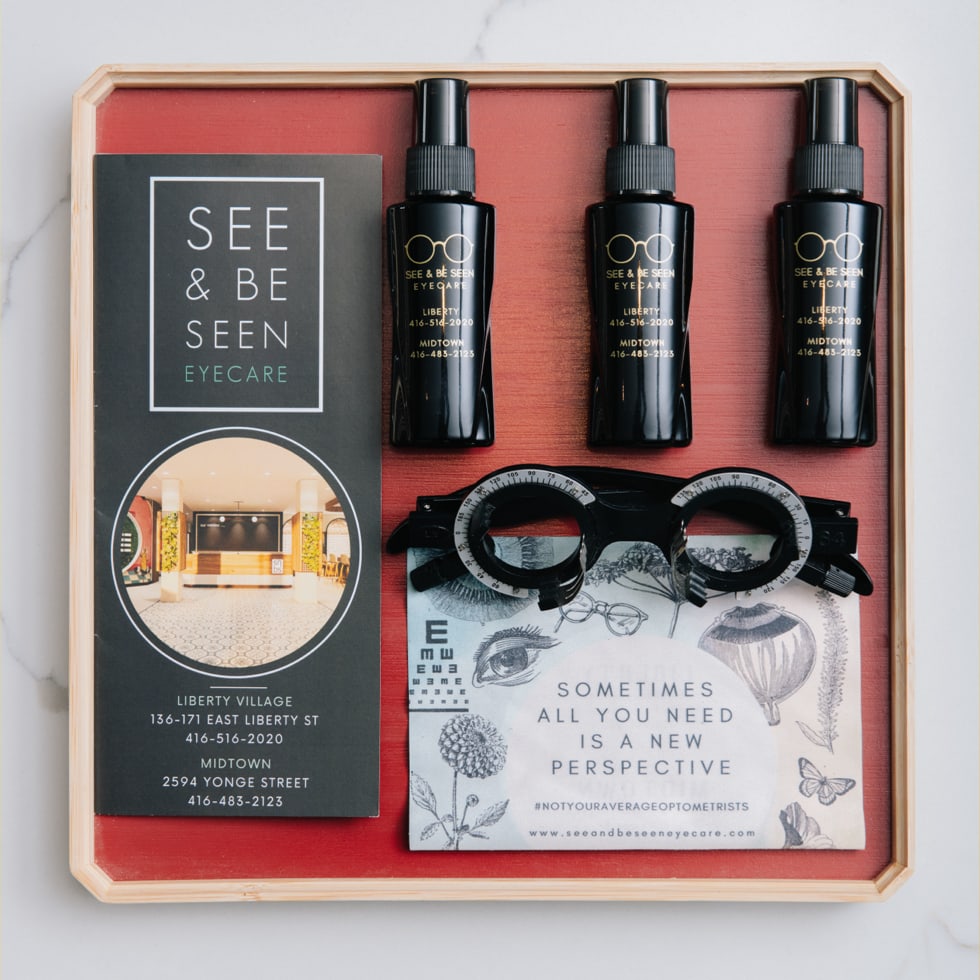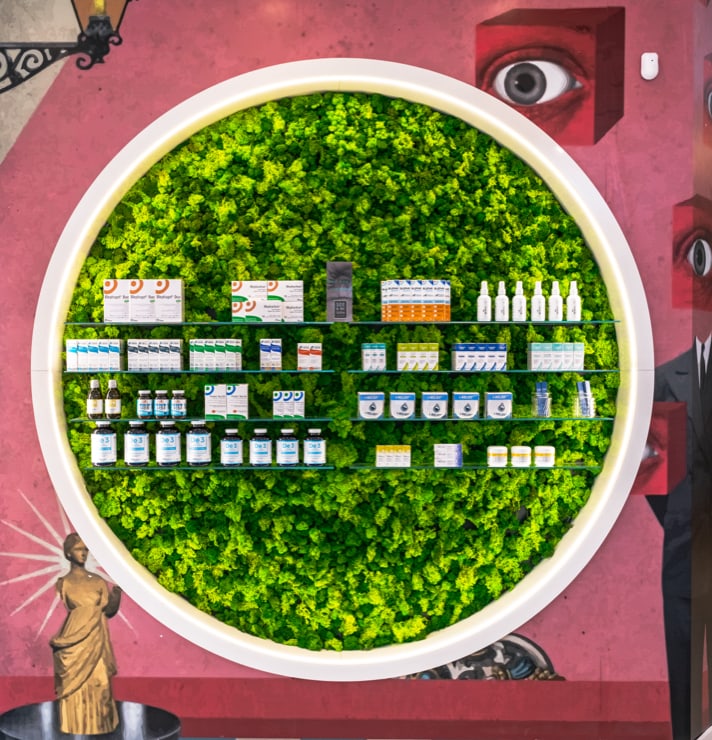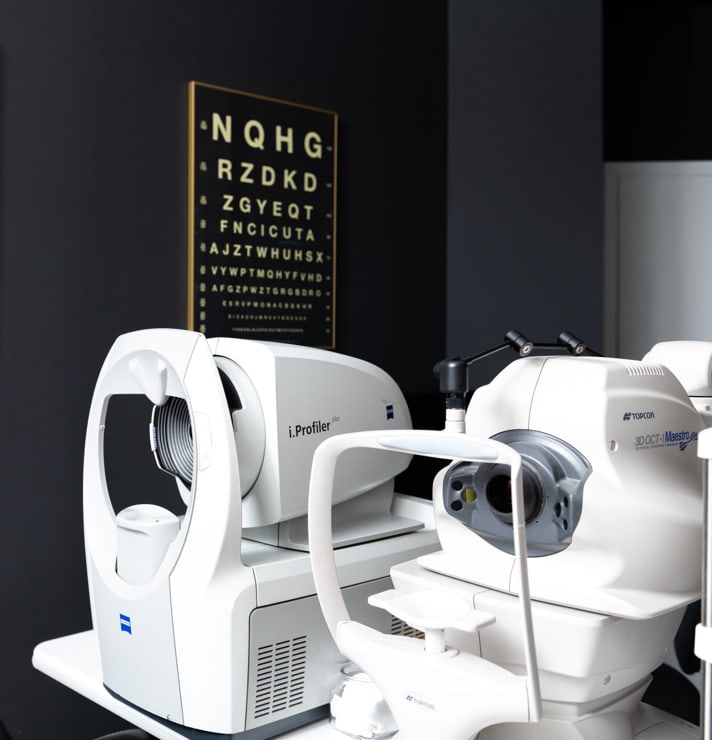Your eyes and the tissue surrounding them are delicate, and any inflammation, puffiness, or eyelid swelling can look and feel quite dramatic. If you have swollen eyelids, you may be able to relieve discomfort at home, but in some cases, a visit to your eye doctor may provide full relief.
If you’re experiencing intense pain, vision loss, or changes in your vision, treat this as an eye care emergency and seek medical help promptly.
But if you or your child are experiencing discomfort related to eyelid swelling, a warm moist compress at home or a visit to the eye doctor might be in order.
What Causes Swollen Eyelid?
When dealing with swollen eyelids, it’s important to address not just the symptom (swelling) but also the underlying cause. Your optometrist can diagnose your eyelid swelling causes and recommend a personalized treatment plan.
Common causes of eyelid swelling include:
- Styes or Chalazia: Small bumps along the eyelid edge, caused by blocked oil glands.
- Blepharitis: Redness and inflammation along one or both eyelids.
- Conjunctivitis (Pink Eye): Discharge and redness in the white of your eye.
- Allergies: Itchiness, redness, and swelling on the eyelids due to allergic reactions.
Other eyelid swelling causes include:
- Mosquito bites or insect stings
- Blunt force trauma to the face
- Contact dermatitis (skin irritation from chemicals)
Less common but serious causes of swollen eyelids may include:
- Orbital cellulitis: A skin infection around the eye, often linked to bacterial sinus infections.
- Shingles: A condition that can lead to severe eye problems.
- Graves’ disease: A thyroid condition that affects the eyes.
If your eyelid swelling doesn’t subside or worsens, it’s essential to visit an eye care professional for a diagnosis and treatment.
Reasons for Swelling on the Eyelid
The tissue of your eyelids is some of the thinnest on your body, with no fat to cushion it. This is why eyelid swelling can appear significant, even if the underlying cause is minor.
Swelling often occurs when your body sends white blood cells to fight infection or protect an injured area. While this is a natural part of healing, persistent or severe swelling could indicate a more serious issue.
If you’re in severe pain, experiencing vision changes, or have light sensitivity, it’s best to treat this as an emergency and see an optometrist immediately.
Types of Swelling & Tips To Treat Them
Styes or Chalazia
- A stye is a painful, red bump on the eyelid caused by a blocked oil gland.
- A chalazion is a hard, painless lump on the eyelid that can develop if a stye doesn’t resolve.
Treatment Tips:
- Avoid squeezing or popping the bump, as this can spread the infection.
- Apply a warm, moist compress to your eyelid for 10 minutes several times a day. Dry heat, like a heating pad or an eyelid compress, works even better.
- If the stye doesn’t improve within a few days, or if tenderness resolves but the bump remains, visit your eye doctor. Treatments like IPL therapy can help reduce inflammation and treat the source of the swelling.
Allergies
Allergic reactions are a common eyelid swelling cause. Antihistamine eye drops or oral medications can help reduce swelling and discomfort. A cold compress applied a few times a day can also provide relief.
Important Notes:
- Allergy eye drops are typically for short-term use and may cause dryness if overused.
- Chronic inflammation or dryness should be addressed with a comprehensive dry eye exam to uncover underlying conditions.
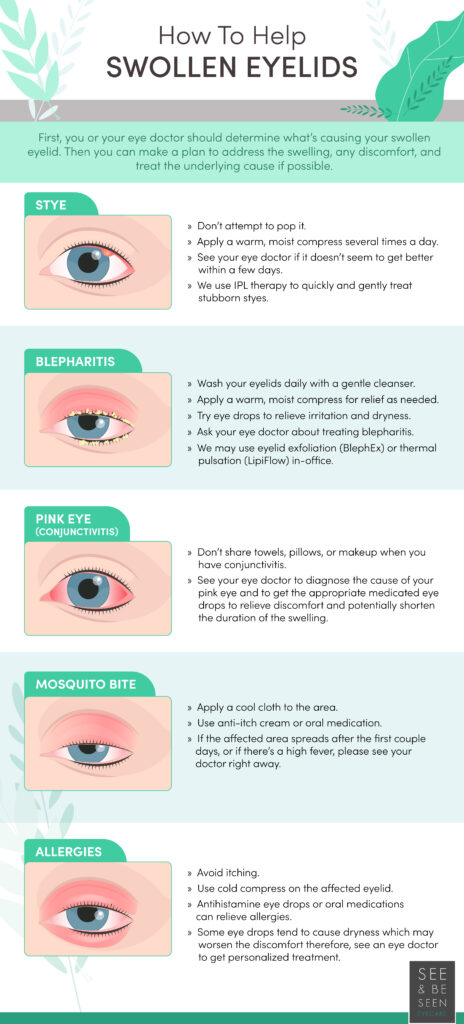
Blepharitis
Blepharitis can cause your eyelids to be swollen, red, itchy, and crusty. Blepharitis can also raise the risk of developing styes and chalazia.
If your eye doctor diagnoses you with blepharitis, they may give you an at-home eyelid hygiene routine that involves cleaning your lids daily with a gentle cleanser. Your doctor may also recommend particular eye drops to relieve discomfort or prescribe medicated drops to fight infection or relieve inflammation.
For our patients with blepharitis, we may suggest BlephEx, which is an exfoliation of the eyelash area, and/or LipiFlow, which breaks up blockages in the glands that line the eyelids.
Pink Eye (Conjunctivitis)
Conjunctivitis, also known as pink eye, is common among children, but anybody can experience it. Conjunctivitis might be caused by:
- Bacteria (such as from contaminated makeup or dirty hands)
- Viruses (including the common cold and coronavirus)
- Allergens
- Chemical exposure
Effective treatment and symptom relief will depend on the type of conjunctivitis a patient has.
A cool wet cloth on the affected eye can offer relief. But if the conjunctivitis is caused by a bacteria or virus, it can be very infectious, so be sure the cloth is not shared with anyone else.
See your eye doctor if you suspect you or your child have conjunctivitis, and we can provide treatment to relieve symptoms and, for bacterial cases, prescribe antibiotics.
Eye Trauma
It’s not always possible to know the extent of an eye injury just by looking at it. Even a seemingly minor injury may have caused underlying damage, so we strongly encourage an appointment with your eye doctor in the case of any trauma to the eye, especially if it has caused swelling.
If you actively have something stuck in your eye, or you feel like something is lodged in your eye, please do not apply pressure to the area, and see your eye doctor for an assessment.
In the meantime, you can relieve pain and swelling by applying a cold compress to the swollen area and by taking an anti-inflammatory drug such as ibuprofen.
Contact Dermatitis
If the skin around your eyes comes into contact with an irritating chemical, you may experience red, itchy, or burning patches of contact dermatitis.
In mild cases, you may be able to address the discomfort by washing the area, applying a cold compress, rubbing a gentle moisturizer into the area (but not in your eyes), and taking an antihistamine if you’re experiencing itching.
If the affected area is painful, spreading, or oozing, please make an appointment with your eye doctor immediately.
Bug Bites or Stings on the Eyelid
A mosquito bite on the arm or leg is annoying enough—on the sensitive skin of your eyelid, it can be maddening and become surprisingly swollen. The good news is that mosquito bites typically only itch for 3 or 4 days, and swelling is generally gone within 7 days.
You may be able to relieve the itching by applying a cold compress and anti-itch cream on the area, avoiding contact with your eyes.
Bug bites can occasionally become infected. If the bite is red, warm, or has a red streak spreading from it, or if you have a high fever or other signs of illness, see your family doctor.
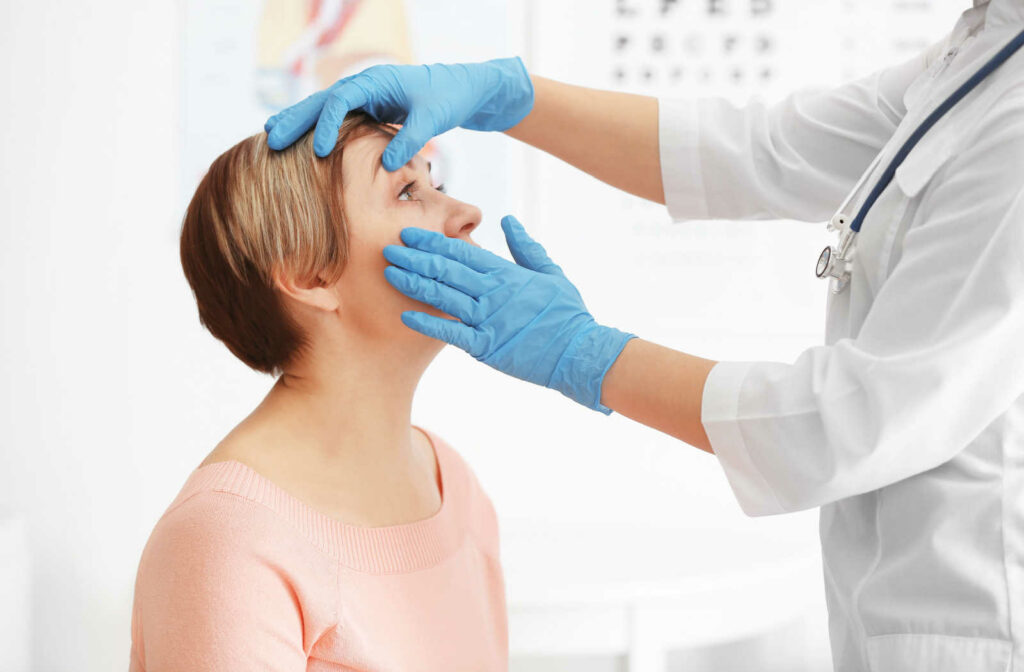
When to See Your Optometrist for a Swollen Eyelid
When it comes to swollen eyelids, we don’t want you to tough it out. If your symptoms are uncomfortable, affect your vision, or don’t start to get better within a couple of days, we strongly encourage you to book an appointment with one of our doctors at See & Be Seen Eyecare in Midtown or Liberty Village.

